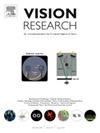进行在线视觉心理物理学实验:两个面部处理研究的复制评估
IF 1.4
4区 心理学
Q4 NEUROSCIENCES
引用次数: 0
摘要
在视觉科学中,研究人员严格控制测试环境和刺激的物理性质,这使得在线进行视觉感知实验具有挑战性。然而,在线研究提供了关键的优势,包括获得更大、更多样化的参与者样本,有助于解决研究不足的问题,并增强结果的普遍性。在人脸识别研究中,增加多样性是必不可少的,特别是考虑到文化和地理因素影响基本视觉人脸处理的证据。目前的研究测试了一个新的在线平台,Pack &;从VPixx技术,它支持用MATLAB和Python编写的实验。基于数据驱动的心理物理方法,包括实时刺激操作和依赖心理工具箱的功能,测试了两个人脸识别实验。在实验1中,将用于人脸识别的视觉信息在四种条件下进行比较,这些条件逐渐减少了对测试环境和刺激特性的实验控制。在实验2中,在线测量了人脸识别能力和信息利用之间的关系,并与实验室结果进行了比较。在这两个实验中,实验室和在线获得的结果非常相似,这表明在线研究视觉科学的潜力。本文章由计算机程序翻译,如有差异,请以英文原文为准。
Conducting online visual psychophysics experiments: A replication assessment of two face processing studies
In vision sciences, researchers rigorously control the testing environment and the physical properties of stimuli, making it challenging to conduct visual perception experiments online. However, online research offers key advantages, including access to larger and more diverse participant samples, helping to address the problem of underpowered studies and to enhance the generalizability of results. In face recognition research, increasing diversity is essential, especially considering evidence that cultural and geographical factors influence basic visual face processing. The present study tested a new online platform, Pack & Go from VPixx Technologies, that supports experiments written in MATLAB and Python. Two face recognition experiments based on a data-driven psychophysical method involving real-time stimulus manipulation and relying on functions from the Psychtoolbox were tested. In Experiment 1, the visual information used for face recognition was compared across four conditions that gradually reduced experimental control over the testing environment and stimulus properties. In Experiment 2, the association between face recognition abilities and information utilization was measured online and compared to lab-based results. In both experiments, results obtained in the lab and online were highly similar, demonstrating the potential of online research for vision science.
求助全文
通过发布文献求助,成功后即可免费获取论文全文。
去求助
来源期刊

Vision Research
医学-神经科学
CiteScore
3.70
自引率
16.70%
发文量
111
审稿时长
66 days
期刊介绍:
Vision Research is a journal devoted to the functional aspects of human, vertebrate and invertebrate vision and publishes experimental and observational studies, reviews, and theoretical and computational analyses. Vision Research also publishes clinical studies relevant to normal visual function and basic research relevant to visual dysfunction or its clinical investigation. Functional aspects of vision is interpreted broadly, ranging from molecular and cellular function to perception and behavior. Detailed descriptions are encouraged but enough introductory background should be included for non-specialists. Theoretical and computational papers should give a sense of order to the facts or point to new verifiable observations. Papers dealing with questions in the history of vision science should stress the development of ideas in the field.
 求助内容:
求助内容: 应助结果提醒方式:
应助结果提醒方式:


